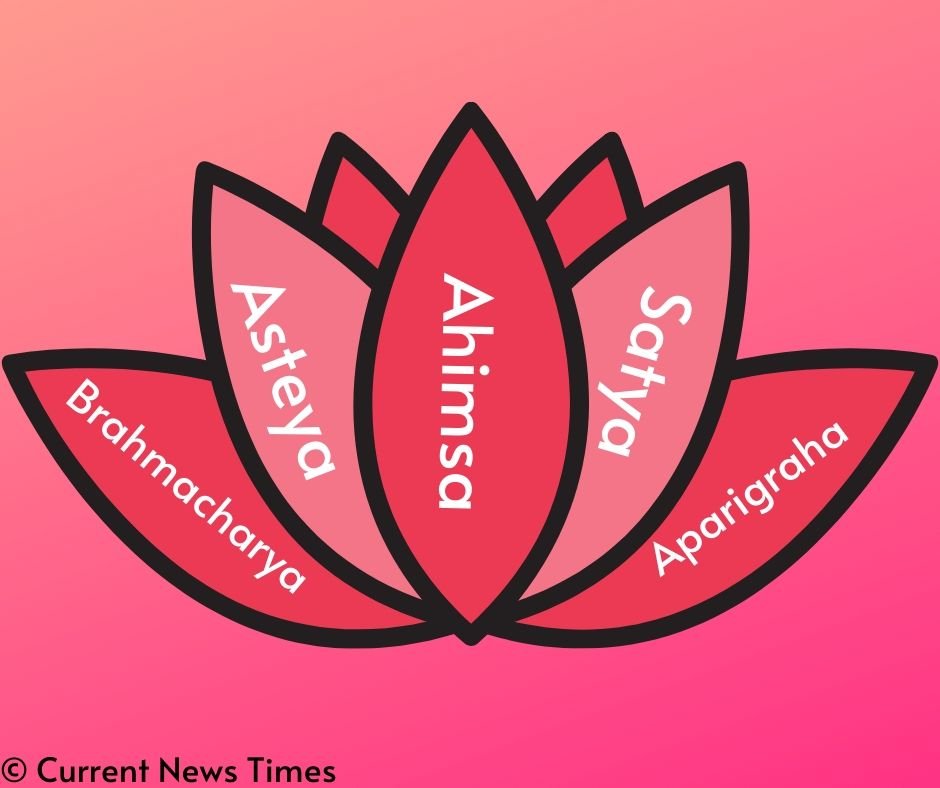The Yamas tell us the methods in which we can regulate our actions and also lays down the moral, ethical, and societal methods which a Yogi should follow in his daily lifestyle.
It helps us to convert our negative energy into peace, calmness, and positivity, it is the most mentioned branch of yoga other than asanas. Patanjali further elaborated Yamas into 5 parts, which I have explained below.
Ahimsa

“Ahimsa, rightly understood, is the ultimate weapon; it turns one’s enemy into a friend, thereby banishing the possibility of further conflict. In the practice of yoga, it is important to understand that the same life flows in the veins of all creatures.”
– Swami Kriyananda
The word Ahimsa means “no harm, no injury” and this a basic moral value which we are thought in our lower classes.
As we all know that fight is never a solution, the end of every war or conflict is ultimately peace and that’s why it should be practiced just like we practice our asanas because peace brings positivity.
And the concept of Ahimsa not only applies to others but also to ourselves as sometimes you are angry at yourself for a mistake, you committed or you failed to achieve your goal.
That’s why in this sense it asks you to be your doctor to prevent harm to others and oneself.
Satya

“Honesty is the best policy” and honesty or truth is what Satya means!
Satya is something that you should not only practice with others but also with yourself. For example – You decided to practice yoga daily, then you should be honest with that and in this way, you practice Satya.
At the time of practice, you should be honest with your body too, consider that you are practicing comfortably, don’t go too far, and hurt yourself, practice with listening, and obeying your body’s abilities.
Practicing Satya can help you bring positivity about yourself and about your practice.
Asteya
Sometimes we feel jealous of other people’s commodities or material and we started comparing ourselves with other’s and here Asteya comes into the role, it’s a practice of not stealing and letting go of jealous feelings.
And in the matter of comparing oneself with others, always remember “Everyone is Unique”
Brahmacharya
Sometimes you might be too enthusiastic to accept every opportunity that comes in our life without realizing that the opportunity is beneficial for you or not? That’s what Brahmacharya guides us to get rid of the things that don’t value or serve you anymore.
Remember that “lighter your bag, the easier your travel of life”
Aparigraha
“Earth has enough for everyone’s need but not for everyone’s greed” – Mahatma Gandhi
Aparigraha means no-greediness, sometimes we feel that if we have a bigger house, a luxurious car or a lot of money than we might feel happier but that’s not true because “ happiness is something that we don’t get by buying new things but by enjoying what we already have” and that’s why Aparigraha guides us to the path of non-greed to bring positivity and happiness in our life.
